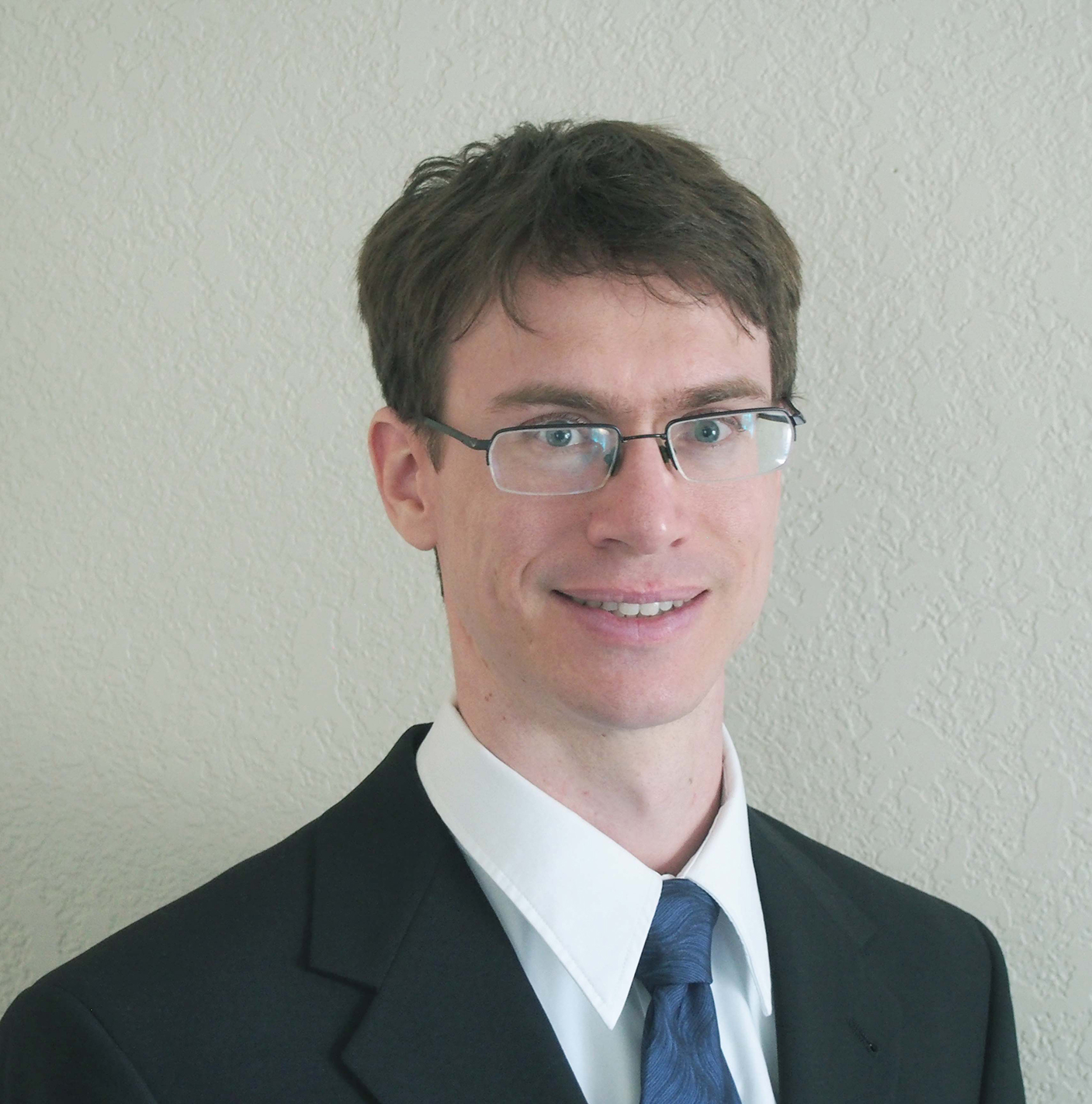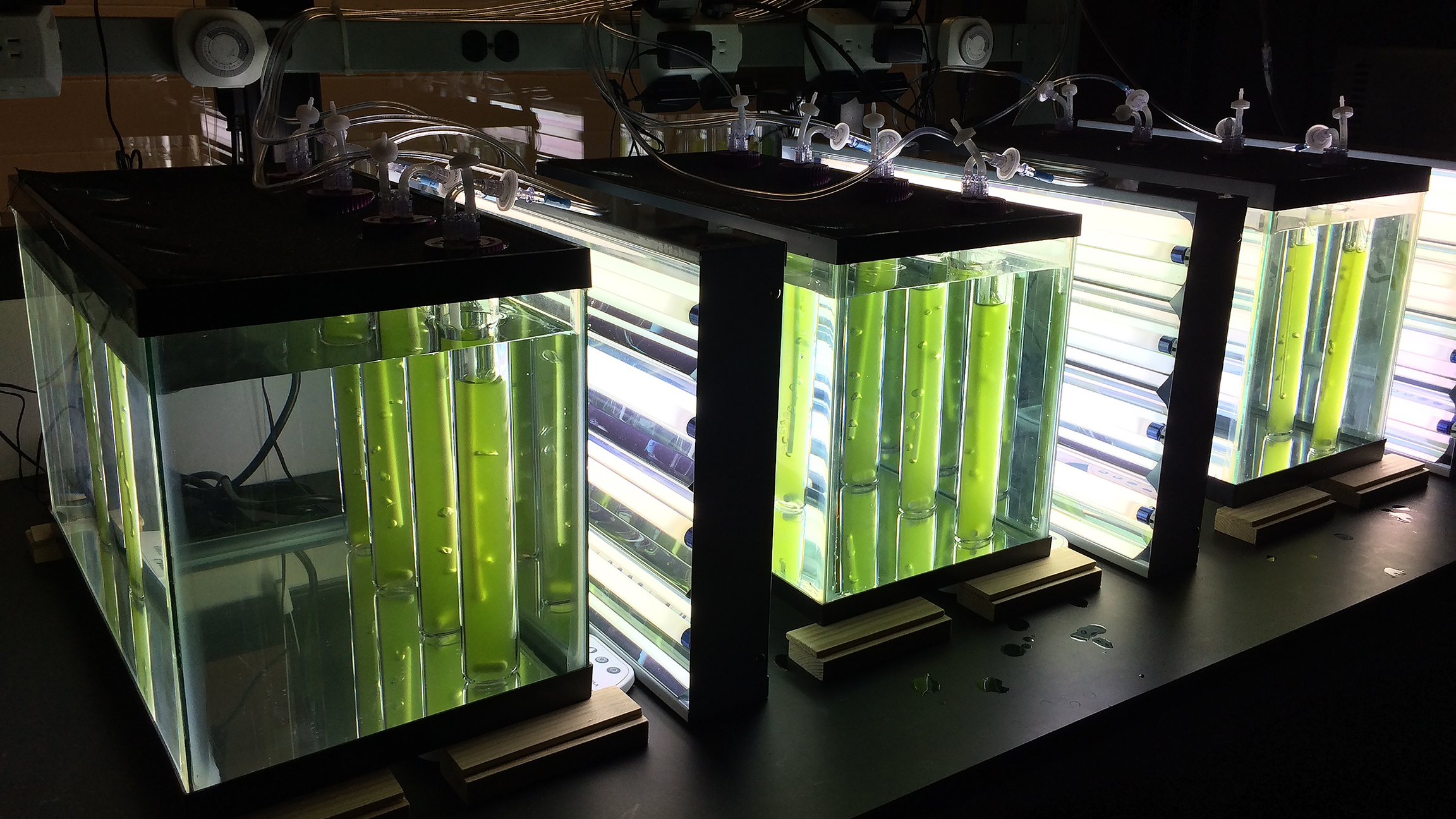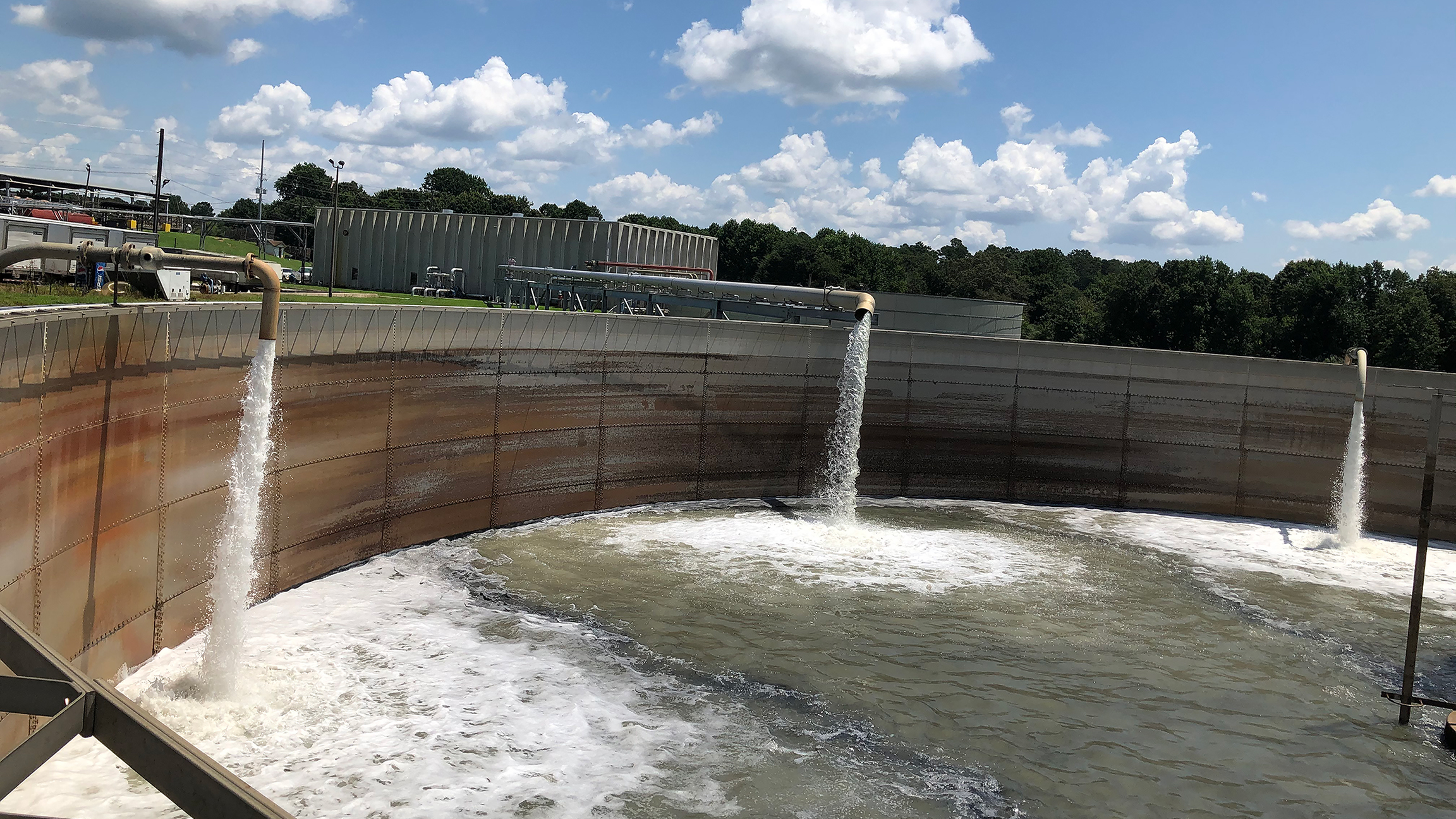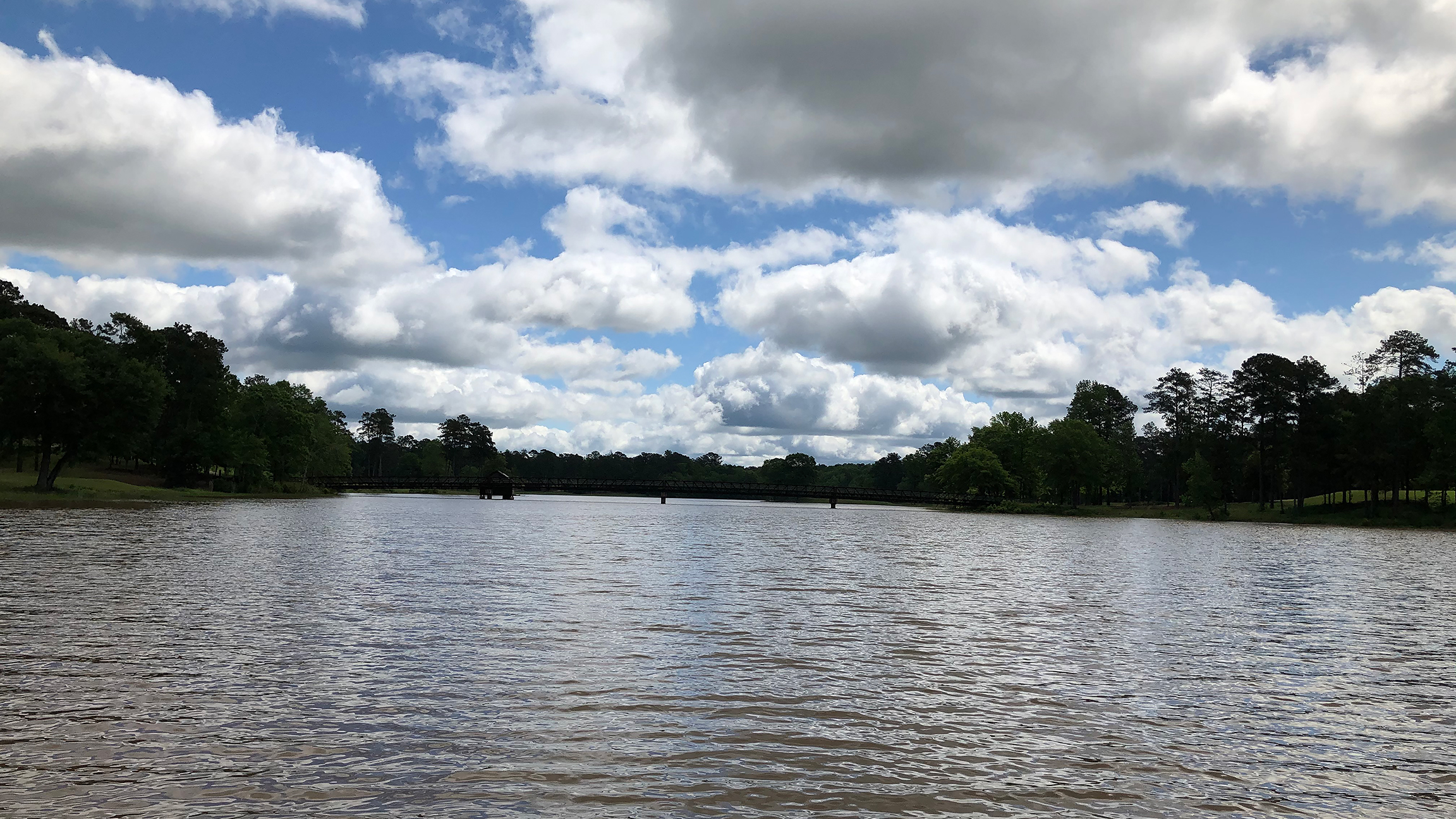
Meet Dr. Brendan Higgins
WE SAT DOWN WITH AU’S DR. BRENDAN HIGGINS, AN ASSISTANT PROFESSOR IN THE SAMUEL GINN COLLEGE OF ENGINEERING.
Tell us about your background and current position.
I’m an assistant professor in Biosystems Engineering and I joined Auburn University in the Fall of 2016 as part of the Energy Cluster. However, my research program has gradually drifted into the water area over time. I would say the central theme of my research at this point is the conversion of wastes back into products of value. The means by which we do this is to study and design processes that capitalize on synergies between algae and bacteria.

Bubble column algal photobioreactors used to conduct batch culture and treatment studies.
Describe your current research activities.
My lab currently focuses on several research areas, most of which relate to water and wastewater. One research project focuses on upgrading the nutrients in anaerobic digestate (waste resource) to algae and then to zooplankton which can serve as a fish feed. We have two current projects looking at predicting and understanding the source of taste and odor issues in our local drinking water reservoirs. We have a project modeling the environmental impacts of aquaponics (re-using fish wastewater to grow vegetables), and now this upcoming NIFA project focused on safely re-utilizing poultry processing wastewater for controlled environment agriculture. All of these projects involve algae and water in some way.

Poultry processing plant wastewater from a large plant in Georgia where we collect water for experiments on novel treatment approaches.
In your career, what is the best advice you’ve been given?
I was told by a senior faculty member to be a “first rate version of yourself rather than second rate version of someone else” as it pertains to research. It is tempting as a new faculty member to chase every hot topic with the hope of winning a project. I am guilty of this and I think, in some regard, it was helpful to stretch out of my comfort zone to pursue new things. However, I think it is even more important to establish a core to your research program and make meaningful discoveries within that area.

Lake Saugahatchee while sampling for microorganisms that cause taste and odor compounds.
